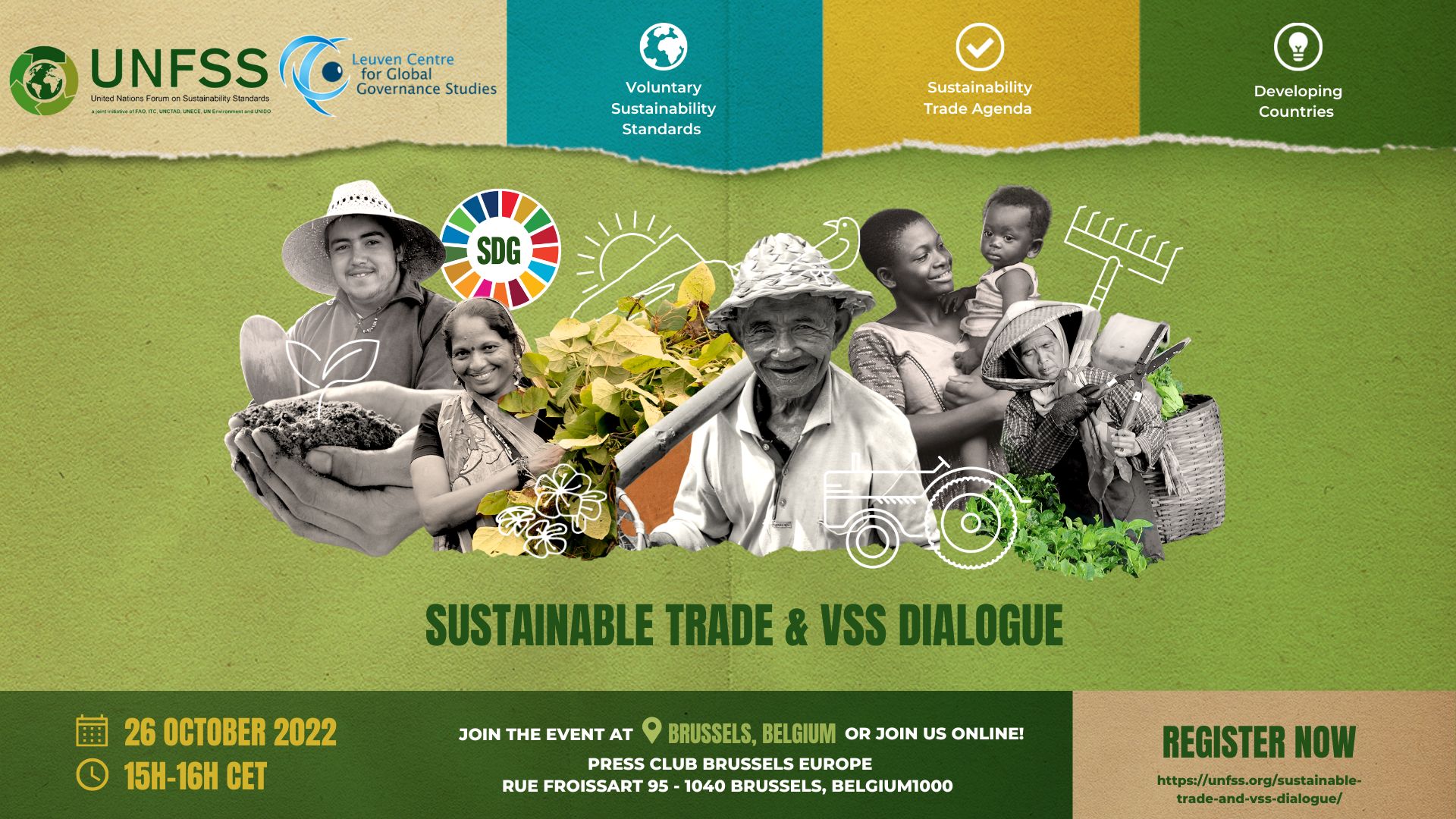
The United Nations Sustainable Development Goals (SDGs) explicitly highlight the importance of sustainable consumption and production. Initiative which certifies products against a set of social and environmental standards play a central role in this regard. Since its emergence in the late 20th century, Voluntary Sustainability Standards (VSS) were heralded as innovative new instruments to help meet some of the most pressing sustainability challenges. Today, VSS have been propelled from specialty niches into mainstream markets due to rising demand among consumers, buyers and producers to address socio-economic, environmental and food safety concerns.
More importantly, international trade policy has evolved in terms of content, increasingly incorporating non-trade objectives, such as sustainable development provisions. By incorporating sustainability standards in trade policy, the ambition of VSS could complement government action, providing governments with a tool to tackle pressing sustainability issues. This has led to the emergence of the concept of sustainable trade.
Sustainable trade can help in fostering more sustainable value chains and mitigate the crises as firms across the globe seek new ways to supply goods in a highly unstable market. The UNFSS 5th Flagship Report on "Voluntary Sustainability Standards (VSS), Sustainability Agenda, and Developing Countries: Opportunities and Challenges" has laid out the multiple roles of VSS to advance the sustainability agenda in developing countries and assess the opportunities and challenges associated with VSS uptake.
With a clear focus on developing countries, the report is a compilation of contributions of several renowned academic experts and policy makers from around the world, who has illustrated a multi-disciplinary area of research that assesses the opportunities and challenges of VSS, that would have been able to pursue what is understood as sustainable trade.
The objective of this VSS dialogue is,
- To invite high-level practitioners to evaluate and validate the need to pursue Sustainable Trade
- To explore the opportunities and challenges of using Voluntary Sustainability Standards to make trade more sustainable
- To strategize the building blocks of Sustainable Trade in cross-border operations
Moderator:
Dr. Bernard Hoekman, Professor and Director, Global Economics at the Robert Schuman Centre for Advanced Studies, European University Institute (EUI)
Panelists:
Dr. Axel Marx, Deputy Director, Leuven Centre for Global Governance, KU Leuven
Mr. Santiago Fernandez de Cordoba, Chief VSS Program, UN Forum for Sustainability Standards, UNCTAD
Mr. Bernd Lange, Chair of the European Parliament on International Trade
Mrs. Symone Betton Nayo, Jamaica Ambassador-designate to Belgium and Head of Mission to the EU
Ms. Kristin Komives, Director of Programmes, ISEAL
Related
Programme
Projet
Contact
Santiago Fernandez De Cordoba Briz santiago.fernandezdecordoba@un.org



